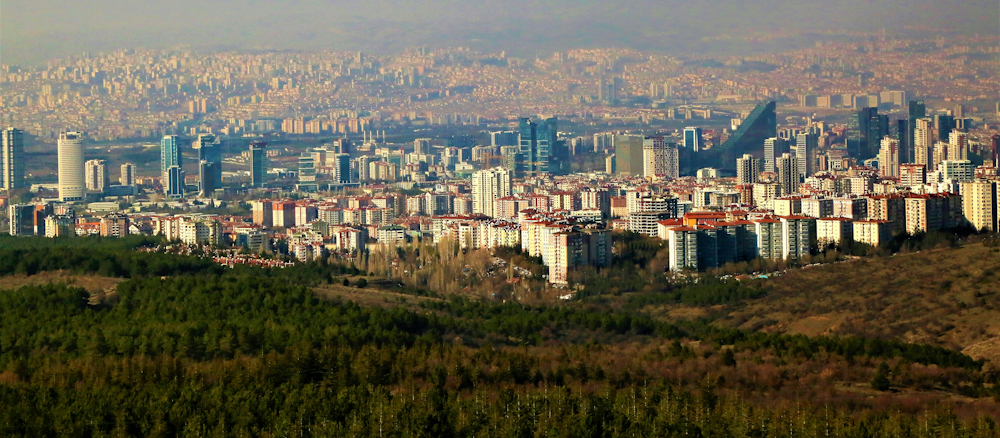Straddling Europe and Asia, Turkey is a multicultural country with a complex, layered history. Thanks to Turkey’s sunny weather, welcoming culture and low cost of living, many expats relocate to Turkey for retirement, but the country has plenty to offer expats who can obtain a work permit. As with any move abroad, relocating to Turkey has its upsides and its drawbacks.
Below are some of the main pros and cons of living in Turkey.
Cost of living in Turkey

+ PRO: Low cost of living
Turkey has a cost of living that is much lower than in many other European countries. Expats with foreign purchasing power can live very well in Turkey, although this benefit is dramatically reduced for those earning a local salary, as persistent, high inflation puts a tight squeeze on any budget paid in Turkish lira.
- CON: Expensive imported goods
Due to a high import tax, imported goods come at a premium. Expats should also be aware of the high costs of electronics, fuel, and importing cars, all of which are subject to heavy taxes.
Healthcare in Turkey
+ PRO: Generally affordable healthcare
Turkey has invested heavily in transforming its healthcare system, rolling out vast, modern ‘city hospitals’ to expand access and quality. The national health scheme, SGK (Sosyal Güvenlik Kurumu), is mandatory for most residents. Expats can usually join after their first year by paying a monthly premium, which covers nearly all costs in public hospitals. Alternatively, the private sector is known for having facilities that rival luxury hotels at prices far below Western averages.
- CON: Healthcare access and quality varies across the country
In the less developed parts of Turkey, public healthcare quality and accessibility may not be as good. Expats in rural areas should familiarise themselves with the standard of healthcare in their area.
Accommodation in Turkey

+ PRO: Variety of housing options
There is a wide range of accommodation in Turkey, with a wide selection of apartments, houses, condominiums or villas available to rent or buy. You can use popular online property portals to find accommodation, or work with a local real estate agent, known as an emlakçı.
- CON: A challenging and unregulated rental market
Finding a rental in major cities is a cutthroat business. To hedge against inflation, landlords frequently ask for six or even 12 months of rent upfront, on top of a substantial deposit. Negotiation is a key aspect of Turkish culture, and you may find the final agreed-upon terms differ from the initial listing. Having a Turkish-speaking friend or a reputable emlakçı assist with the contract is a non-negotiable part of the process.
Education in Turkey
+ PRO: Free primary and secondary education
Public primary and secondary education is free for all residents in Turkey. The language of tuition in public schools is Turkish. This makes it a viable choice only if your children are young enough to pick up the language easily or already speak it.
- CON: Limited space and high fees in international schools
There are international schools in Turkey that teach in English or other foreign languages, but space is limited and fees tend to be high. Expat parents planning to move to Turkey should secure a spot as soon as possible and ensure their budget can accommodate the costs involved. As a popular alternative, many private Turkish schools (known as kolej) offer strong bilingual programmes at a more affordable price than their international counterparts.
Education in Turkey
International Schools in Turkey
Getting around in Turkey

+ PRO: Widespread and cost-effective public transport
Long-distance coaches here are a far cry from the standard bus experience. You can expect spacious 2+1 seating arrangements and a steward pouring lemon cologne into your hands after a snack service. If you prefer rails, the high-speed YHT connects Istanbul and Ankara, although tickets often sell out days in advance. Locally, the dolmuş is king. These shared minibuses have no fixed stops; you simply flag one down and pass your cash forward to the driver via the other passengers.
- CON: Road safety is a concern
Driving standards in Turkey can be alarming for newcomers. Adherence to road rules is often optional, and the driving style is best described as assertive and fast. This contributes to a high motor vehicle accident rate, so you should exercise extreme caution, both behind the wheel and as a pedestrian.
Transport and Driving in Turkey
Working and doing business in Turkey
+ PRO: A relationship-driven business culture
Doing business in Turkey is built on a foundation of personal trust. The culture is highly social and far less transactional than in many Western countries. Be prepared for business to be conducted over extended lunches, dinners, or countless glasses of tea (çay). This approach naturally slows things down. Yet, in Turkey, a bond of trust holds more weight than legal fine print. Business often follows friendship, not the other way around.
- CON: Protectionist work permit policies
Securing employment as a foreigner is notoriously difficult. The government keeps a tight grip on work permits to prioritise local hires. Companies are often required to prove that a local candidate cannot fill the role and must meet certain criteria, such as employing several Turkish citizens for every one foreigner on staff. The process is far more straightforward for intra-company transfers or for professionals with highly sought-after skills in specific sectors.
Working in Turkey
Work Permits in Turkey
Safety in Turkey
+ PRO: Low rates of violent crime
Day-to-day personal safety is a major plus for many expats. Those relocating from large North American or European cities often express surprise at how safe they feel. Violent crime is relatively low, and it’s common to see neighbourhoods full of life late into the evening, with families and children out and about.
- CON: Petty crime and serious road safety concerns
Like any major global hub, cities such as Istanbul have their share of petty crime. You should be watchful of your belongings and aware of common scams, particularly in crowded tourist zones. The more immediate, daily concern is road safety. The driving style is aggressive, and this remains one of the biggest risks to personal safety. Finally, while it doesn’t affect daily life for the vast majority of residents, Turkey does border less stable regions, so checking your home government’s travel advisories is a prudent step. These typically focus on very specific border areas.
Local culture in Turkey
+ PRO: Hospitable and friendly people
Hospitality is a cornerstone of Turkish culture. People are generally known for their warmth and generosity, and often show a genuine curiosity towards newcomers. Don’t be surprised if a shopkeeper you’ve just met invites you for a glass of tea (çay), or a new acquaintance insists on paying for your meal; these are common and genuine expressions of welcome.
+ PRO: Turkey is a secular state
The concept of secularism is a founding principle of Turkey. While the country's population is overwhelmingly Muslim and religious traditions are very much a part of public life, individuals are constitutionally free to practice their own beliefs. This creates a society where modern attitudes and traditional practices coexist. Showing respect for local customs is always appreciated, such as being mindful of those fasting during Ramadan by refraining from eating or drinking in public, especially in more conservative areas.
